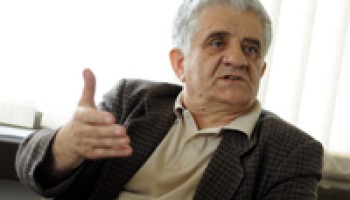Copic’s privatization and money laundering operation would not have been possible without hefty bank loans. According to the indictment by the Serbian Special Prosecutor for Organized Crime, Copic and Saric obtained a €6 million (US$ 8 million) loan from the Intesa San Paolo Bank, using a hotel Saric privatized as collateral. This money was allegedly an installment that Saric paid Copic for Mitrosrem, a company used to launder Saric’s drug money. Tapped telephone conversations presented by the prosecution show that Copic and Saric were in touch with the top people in Intesa bank. Saric can be heard asking Copic when he will go to the bank for “that thing,” and Copic later in the conversation tells Saric that he reserved a place for the president of Intesa bank in a restaurant owned by, among others, Saric’s sister.
Copic served as a liaison for a group of businessmen and criminals from Serbia, Montenegro and Bosnia and Herzegovina. The group bought several dozen companies in the region. Copic’s associates and banks poured millions of euros into his chain of privatizations. After their value was extracted, many of the companies were abandoned after stripping them of assets despite pledges to the privatization agency to invest in them. Ten companies declared bankruptcy, and the state seized three others. Factories were shut down, and nearly a thousand workers lost their jobs.
Until 2008, the Serbian government did not run background checks on buyers of state companies. Even though Copic was indicted for cigarette smuggling in 2004 (he was acquitted, then convicted on appeal in 2009), he was able to privatize 17 companies in Serbia and Bosnia and Herzegovina between 2005 and 2009. In 2009, Copic’s chain of privatizations finally ended when the authorities discovered his connection to Darko Saric. Dusan Belanovic, the director of the Serbian Communications Sector and Privatization Agency, told the Center for Investigative Reporting in Serbia (CINS) in June “I have no idea who Zoran Copic is.”
However, documentation obtained by CINS shows that government agencies in charge of privatization did nothing to stop Copic after they became aware that he was breaching the terms of sales contracts.
Nebojsa Jestrovic, who was charged in August 2010 with being Darko Saric’s chief money launderer, testified in court in February 2011 that “Zoran Copic was my connection with the banks. He has connections in all the banks, and when I say connections, you know what a connection means in Serbian. There is literally no bank in which he didn’t have access to the top guy, which I used to get loans.”
Representatives of the Intesa bank refused to give CINS an interview.





